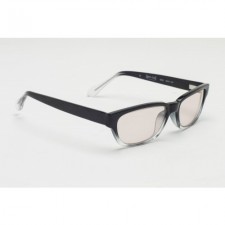Myeyewear2go.com - Glass Lenses vs. Plastic: Which is Better?

Middlesex, NJ, November 4, 2016 (Newswire.com) - Have you ever noticed that when we call something "glasses" these days, it's likely to be made out of plastic? Whether it's your wineglass, your water glass, or your eye glasses, they're almost always plastic. And that seems logical, when you think about it. While glass was the material we used in the past, chemistry and science eventually replaced glass with something stronger, more flexible, and better.
But is it better? Really? Or have we just been told that often enough that we accept it without questioning it anymore?
Glass Lenses vs. Plastic: Advantages and Disadvantages
Glass lenses, as the older contender, have a little something to prove in the minds of most people. After all, we all know how fragile glass is, and how expensive a new pair of glasses can be if you shift wrong, or drop your specs at an inopportune moment. However, traditional glass lenses are often less expensive than their polycarbonate counterparts. They're also heavier, and typically thicker, which can mean they rest uncomfortably on the nose without a suitably big frame to space out their weight. It also means glass lenses are more likely to slip down the wearer's nose, precisely because of their weight.
But what about plastic lenses? Everything can't be sunshine and roses with them, or there wouldn't even be an option to use glass lenses anymore, would there?
Well, plastic lenses have some strengths right out of the gate. They're significantly more durable than their glass counterparts, and they can often survive all sorts of slips, falls, stumbles, and outright abuse before they need to be replaced. This makes these lenses ideal for active wearers, especially children, since they tend to face a lot more adversity in regards to their eye wear.
There are downsides to plastic lenses, though. Because while some of them are lighter in weight than glass, others (particularly high index plastic lenses) are comparable in weight. So, in these cases, the only advantage of plastic over glass is their durability. That may not be enough to counter how much more expensive plastic lenses are than glass ones, especially if the wearer only needs to be able to see while reading a book or driving a car, instead of while pelting full-tilt across a playground, or while staring down a pitcher from the batter's box.
Ultimately, The Decision is Up To The Wearer
If you're wondering whether to get glass or plastic lenses, then you have to make that decision based on what's right for you, and your particular circumstances.
For example, your prescription might be lighter, more comfortable, and more attractive in a plastic lens instead of a glass one. But if your insurance will cover a glass lens, but won't cover plastic, then the choice is going to be what you can afford. Or, alternatively, if your insurance makes plastic cheaper than glass, then that should be no contest. On the other hand, you might live a very active life, or work a very physical job, where glass lenses would be an outright hazard for you. Or you might work in a cubicle where the most difficult task you'll perform is walking down the hall to get fresh coffee while you crunch more numbers.
While there are advantages and disadvantages to each type of material, you need to view them through the lens of your own life (so to speak). Because what might be a godsend to one person, is just going to be an annoyance to another. For more information on lenses, and which ones are a better fit for your needs, all you have to do is contact us today!
Source: Myeyewear2go